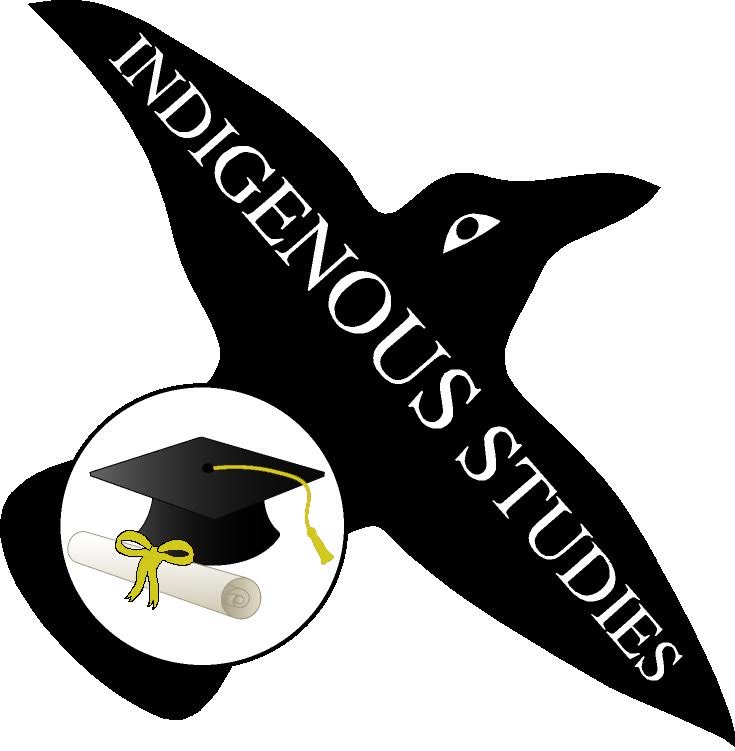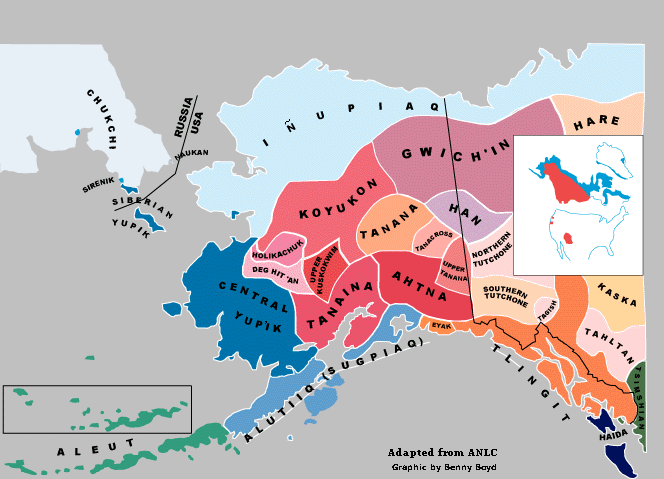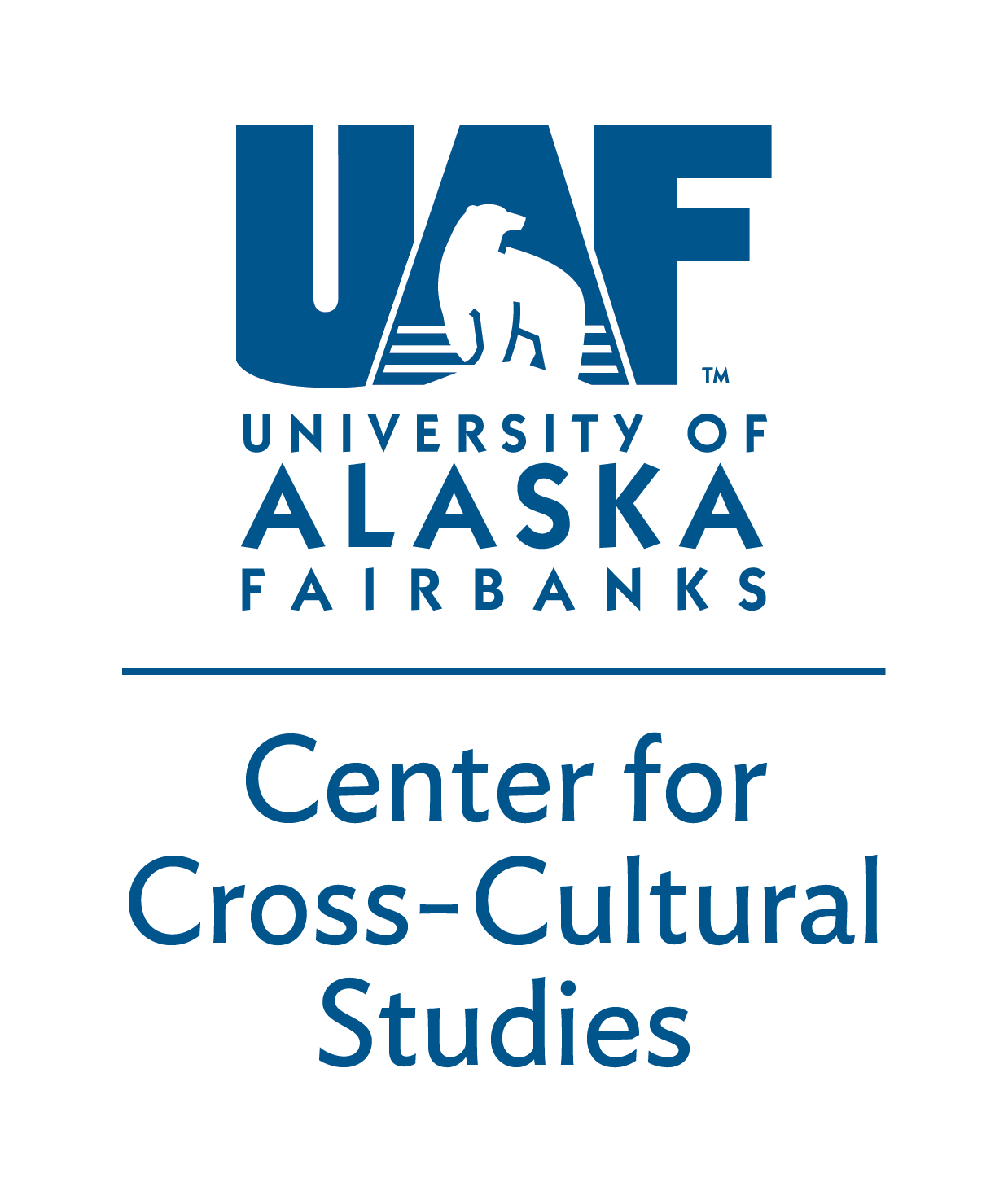PhD in Indigenous Studies

About
Indigenous Studies Ph.D. students will participate in research activities across a variety of academic disciplines and applied fields at UAF. Candidates are encouraged to engage in comparative studies with other Indigenous peoples around the world and to focus their dissertation research on issues of relevance to Alaska and the Arctic.
In collaboration with the graduate committee, each student develops a program of coursework and research that produces a unique intellectual contribution to the applied fields associated with Indigenous Studies. Students elect to focus on one of the six concentrations or they may choose in collaboration with their graduate committee to draw on multiple themes to develop their areas of knowledge and dissertation research.
The specific skill set of the graduates will include quantitative analysis, scientific applications, qualitative research methods, research design and program management, along with broad conceptual frameworks for understanding the dynamics of social-cultural-ecological systems. Using the Interdisciplinary Ph.D. model of academic assignment, student’s home base will be in the School or College of their major advisor, who also serves as an affiliate faculty for the program.
- To provide the programmatic infrastructure for advanced, in-depth, interdisciplinary
graduate studies and research in academic fields related to the role of Indigenous
knowledge and ways of knowing in the contemporary world.
- To prepare graduates who are capable of conducting basic and applied research on social,
political, educational, economic and cultural issues of concern to people and communities
in the circumpolar north, with a particular emphasis on Alaska.
- To expand the pool of knowledgeable and highly skilled Alaskans who can assume leadership
and technical positions with public and private sector organizations, including universities,
school districts, social service agencies, Native corporations, tribal governments,
and state and federal agencies in Alaska and beyond.
- To provide a venue to sponsor state, national and international seminars, conferences,
exchanges and comparative research programs that bring people together around issues
of concern to Alaska, the circumpolar north, and Indigenous people throughout the
world.
- To contribute to and tap into newly emerging bodies of academic scholarship that address
the role of Indigenous knowledge systems in fields such as ecological studies, natural
resources management, health care, education, language revitalization, community development,
social services, justice, and Native studies.
- To achieve economies-of-scale that put existing university resources and capabilities to more effective and efficient use in addressing issues of concern to all Alaskans.
Delivery Method
The program will be offered through a variety of flexible course delivery methods to students living throughout Alaska and beyond. The program offers a full complement of campus-based and distance courses consistent with the standards of advanced graduate study at UAF.
PhD Indigenous Studies
(Minimum Requirements for Degree: 45 credits)
As a UAF graduate student, you are also expected to familiarize yourself with UAF Graduate School requirements in the current UAF catalog. We encourage you to review these materials carefully and to ask questions of faculty and staff about how to make the most of this program.
Areas of Concentration
The joint Ph.D. program in Indigenous Studies draws and builds upon long-standing academic and research capabilities at UAF to offer an integrated course of advanced graduate study consisting of a common core curriculum that all students complete, coupled with six thematic areas of emphasis from which students choose a concentration:

Indigenous Sustainability
The Indigenous Sustainability concentration is concerned with the social, cultural, and physical well-being of Indigenous communities at the present and into the future, in part by understanding the changes of the past. Students focusing on this concentration area will explore interdisciplinary topics from a systems perspective that holistically examine the interactions between food, health, education, economic, and political subsystems, within a historical context. Knowledge sources for sustainability are not limited to a single cultural or ideological perspective, and new ideas and experiences concerning issues of sustainability are taken into consideration.
- ACNS/PS F603 Public Policy
- ANTH/BIOL/ECON/NRM F647 Sustainability in the Changing North
- ANTH/BIOL/ECON/NRM F649 Integrated Assessment and Adaptive Management
- CCS/ED F619 Cultural Atlases as a Pedagogical Strategy
- CCS/NRM F656 Sustainable Livelihoods and Community Well-being
- ED F681 Place-based Education
- MBA F642 Economics of Environmental and Business Sustainability
- PS/ACNS F669 Arctic Politics and Governance
- RD F430 Indigenous Economic Development and Entrepreneurship
- RD F671 Corporate Social Responsibility and Accountability in Rural and Indigenous Contexts

Indigenous Studies & Research
The Indigenous Studies and Research concentration provides the programmatic infrastructure for advanced, in-depth, interdisciplinary graduate studies and research in academic fields related to the role of Indigenous knowledge and ways of knowing in the contemporary world. This will provide students focusing on this concentration area to provide a venue to sponsor state, national and international seminars, conferences, exchanges and comparative research programs that bring people together around issues of concern to Alaska, the circumpolar North, and Indigenous people throughout the world.
- ANTH F630 Anthropological Field Methods
- ANTH F637 Methods in Ethnohistorical Research
- ANTH F646 Economic Anthropology
- CCS F602 Cultural and Intellectual Property Rights
- CCS/ED F603 Field Study Research Methods
- CCS/ED F604 Documenting Indigenous Knowledge
- CCS/ED F616 Education and Socioeconomic Change
- RD F601 Political Economy of the Circumpolar North
- RD F650 Community-based Research Methods
- RD F651 Management Strategies for Rural Development

Indigenous Leadership
The Indigenous Leadership concentration prepares graduates who are capable of conducting basic and applied research on social, political, educational, economic and cultural issues of concern to people and communities in Indigenous communities. Students focusing on this concentration area will expand the pool of knowledgeable and highly skilled Alaskans who can assume leadership and technical positions with public and private sector organizations, including universities, school districts, social service agencies, Native corporations, tribal governments, and state and federal agencies in Alaska and beyond.
- ACNS/HIST F600 Perspectives on the North
- ACNS/ANTH F610 Northern Indigenous Peoples and Contemporary Issues
- ACNS/PS F647 U.S. Environmental Politics
- ACNS/PS F652 International Relations of the North
- ACNS/PS F654 International Law and the Environment
- ACNS F657/PS F650 Comparative Indigenous Rights and Policies
- ACNS/PS F662 Alaska Government and Politics
- ACNS/PS F669 Arctic Politics and Governance
- ANS F475 Alaska Native Social Change
- ANTH F603 Political Anthropology
- ANTH F607 Kinship and Social Organization
- ANTH F652/PS F650 Research Design and Professional Development Seminar
- ANTH F653 Current Perspectives in Cultural Resource Management
- BA F470 Leadership Theory and Development
- ED F660 Educational Administration in Cultural Perspective
- MBA/HSEM F656 Strategic Leadership
- RD F600 Indigenous Leadership Symposium
- RD F625 Community Development Strategies: Principles and Practices
- RD F651 Management Strategies for Rural Development
- RD F652 Indigenous Organization Management
- RD F671 Corporate Social Responsibility and Accountability in Rural and Indigenous Contexts

Indigenous Languages
The Indigenous Language concentration strives to reinforce an Indigenous identity that is dependent on the language and culture, prepares the student for success in the world, and leads to acceptance at home. The concentration is based on the philosophy that a strong command of an Indigenous language leads to an understanding of Indigenous ways of life, the world around us, and our place in it.
- ANL F402 Alaska Native Language Apprenticeship II
- ANL F452 Principles of Linguistic Analysis for Alaska Native Languages
- ANL F601 Seminar in Language Revitalization
- ANL/LING F651 Topics in Athabascan Linguistics
- ED F620 Language, Literacy and Learning
- ED/LING F621 Cultural Aspects of Language Acquisition
- LING F601 Principles of Linguistic Analysis
- LING F602 Second Language Acquisition
- LING F610 Theory and Methods of Second Language Teaching
- LING F611 Second Language Materials and Assessment
- LING F612 Assessment for the Second Language Classroom
- LING F627 Introduction to Linguistic Description and Documentation
- LING F631/ANTH F632 Field Methods in Descriptive Linguistics I
- LING F650/ANTH F654 Language Policy and Planning
- YUP F488 Documenting Yup'ik Traditions/Caliarkaq
- YUP F415 Additional Topics in Advanced Yup'ik

Indigenous Knowledge Systems
The Indigenous Knowledge Systems concentration contributes to and taps into newly emerging bodies of academic scholarship that address the role of Indigenous knowledge systems in fields such as ecological studies, natural resources management, health care, education, language revitalization, community development, social services, justice, and Native studies. Students focusing on this concentration area will compare and analyze the epistemological properties, worldviews, and modes of transmission associated with various Indigenous knowledge systems.
- ACNS/ANTH F470 Oral Sources: Issues in Documentation
- ANS/RD F401 Cultural Knowledge of Native Elders
- ANS/ED F461 Native Ways of Knowing
- ANS/RD F465 Community Healing and Wellness
- ANTH F607 Kinship and Social Organization
- ANTH F610 Northern Indigenous Peoples and Contemporary Issues
- ANTH/ACNS F670 Oral Sources: Issues in Documentation
- CCS/PSY F606 Indigenous Ways of Healing
- CCS/ED F611 Culture, Cognition and Knowledge Acquisition
- CCS F612 Traditional Ecological Knowledge
- CCS/PSY F621 Indigenous Ways of Knowing
- CCS F602 Cultural and Intellectual Property Rights
- COJO F457 Indigenous Dispute Resolution
- COJO F459 Indigenous Dispute Systems Design
- FISH F611 Human Dimensions of Environmental Systems
- RD F462 Rural Health and Human Service Systems
- RD F625 Community Development Strategies: Principles and Practices

Indigenous Education/Pedagogy
The Indigenous Education and Pedagogy concentration provides an opportunity for students to engage in the comparative study of issues associated with the education of Indigenous peoples and communities with an emphasis on the role of language and culture through a review of educational practices, pedagogies, and theories that have emerged from a variety of sources. Students focusing on this concentration will demonstrate a greater understanding about the role of Indigenous culture and language in cognitive, social, psychological, spiritual, and physical well-being.
- ANS/ED F461 Native Ways of Knowing
- CCS/ED F619 Cultural Atlases as a Pedagogical Strategy
- CCS/ED F682 Rethinking Multicultural Education
- ED F606 Alaska Native Education
- ED/CCS F610 Education and Cultural Processes
- ED/CCS F611 Culture, Cognition and Knowledge Acquisition
- ED F612 Foundations of Education
- ED/CCS F613 Alaska Standards for Culturally Responsive Schools
- ED F624 Foundations of Education in Alaska: From Segregation to Standards
- ED F630 Curriculum Development
- ED F631 Culture, Community and the Curriculum
- ED F681 Place-based Education
- ENGL F686 Teaching Writing in a Cross-cultural Context
Additional Resources
Instructions
You will find instructions for the work you will do constituting the comprehensive exam for your PhD in Indigenous Studies. You will have three themes to address over a period of three months (approximately one month per theme) at the end of which you will be expected to submit three papers averaging 10 to 15 pages each plus a cover page for each theme (12 point type, 1.5 line spacing with appropriate APA citations). The themes listed below are intended to coincide with the focus of your PhD dissertation, so that if done properly, the papers you prepare for your comprehensive exam should also serve as chapters/sections in your dissertation. It is important therefore, that you have identified a focus for your dissertation research by the time you take on your comprehensive exam, and if possible, the exam papers should be completed the semester before you immerse your self in the writing of your dissertation. For credit purposes, you are encouraged to enroll in three or more credits of ANL/CCS/ED/RD F699, Thesis, the semester in which you take your comps, and then enroll in the final credits of ANL/CCS/ED/RD F699 the final semester when you complete your dissertation, though it is possible to complete all more than six credits of ANL/CCS/ED/RD F699 in one semester.
When you are finished with the three comp exam papers, please submit your responses to your committee chair as email attachments—they will then be forwarded to and reviewed by your PhD committee members to determine if they are satisfactory or not. An oral exam will be scheduled with your committee and an outside examiner to review your responses to the comp topics. Once the committee is satisfied with your responses, the appropriate paperwork will be submitted to the Graduate School signifying that you have completed your written and oral comprehensive exam for your PhD. This will be followed by submission of your Advancement to Candidacy as you come down the home stretch on your dissertation. Let me know if you have any questions along the way.
Following is a brief description of the three papers you are to prepare for your comprehensive exam. Your responses should roughly correspond to the introduction, literature review and research design associated with your PhD dissertation research.
Theme # 1: Overview of Proposed PhD Dissertation Research Topic
In the work you did for the course, CCS F608, Indigenous Knowledge Systems, it was pointed out that Indigenous peoples have traditionally formed a strong bond with the land and environment in which they live, and this bond has shaped much of their ways of knowing, worldviews and forms of consciousness that make up their Indigenous knowledge system and underlie their cultural traditions and practices. Based on the observations and issues raised in the courses you have taken for your PhD program, as well as your own experience, describe the topic you plan to address for your dissertation and discuss how it will contribute to the cultural practices, community wellbeing and/or quality of life of the people/community/organization to whom it is addressed. In other words, make the case for what you are planning to do and why, and provide illustrative examples to bolster your response.
Theme # 2: Literature Review on PhD Dissertation Topic
Given the research topic you have identified under Theme # 1, conduct a review/synopsis of existing literature related to the dominant idea, subject, principle or practice associated with your topic. Typically, the literature you cite should be from within the past ten years or so, and it should cover the major threads of prior work on the subject and locate your proposed contribution to the field (your contribution will be elaborated under Theme # 3). Provide appropriate citations (APA style) for the pertinent literature addressed in your review.
Theme # 3: Methods/Methodologies: Research Issues Related to PhD Dissertation Topic
Whereas the literature review under Theme # 2 highlights what is already known regarding your proposed dissertation topic, your response to Theme # 3 will describe the kind of information you will be assembling for your research building on the previous work, and the research/cultural documentation issues you anticipate as you proceed. How will you go about gathering the information you need to complete your dissertation, and what steps will you take to demonstrate respect for the cultural knowledge you will be drawing upon? Describe the kinds of information you will be seeking for your research, how you plan to go about it, and how you will attempt to make sense out of it in a culturally considerate way. You are encouraged to review the materials discussed in the CCS 604, Documenting Indigenous Knowledge course as you prepare your response to this theme. If your dissertation involves working with human subjects, this paper should be helpful in preparing your application to the Institutional Review Board as well. If appropriate, you may also describe some of the issues that have arisen among Indigenous peoples regarding cultural and intellectual property rights as they relate to research, including the steps that have been taken by Indigenous peoples’ to address these issues and to take into account Indigenous knowledge systems, ways of knowing and worldviews.

To be filled
Graduate Student Coordinator
College of Indigenous Studies
Reach out to Dr. Topkok to learn more about the Ph.D. Indigenous Studies program.


